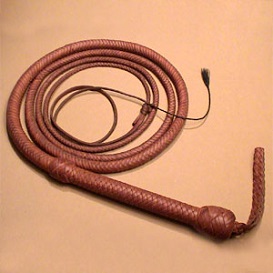
dramatization
Islamic justice had condemned hundreds of young
women to be flogged in the Gulf in the past years
pictures thanks to Rolf B Miller
Flogging in the name of religion
judicial "torture" -- accountablity at what price?
Build your own free website at tripod.com
Two Older Cases Shed Light on Floggings in the Muslim World
British Woman Spared Flogging, but the Practice of Lashings is NOT Going Away

Islamic justice had condemned hundreds of young
women to be flogged in the Gulf in the past years
pictures thanks to Rolf B Miller
Flogging in the name of religion
judicial "torture" -- accountablity at what price?
A British teacher charged in Sudan with inciting religious hatred was spared the maximum sentence of 40 lashings with a bamboo cane Thursday, but will spend 15 days in jail before being deported.Gillian Bibbons was charged after she allegedly allowed her her young students to name a teddy bear Muhammad, the name of the Muslim prophet.
The one-day trial came just one week after a Saudi Arabian court increased the sentence of a 19-year-old rape victim to 200 lashes and six months in prison. According to a Justice Ministry statement, the woman invited the sexual attack by seven men because she was in a parked car with a man who was not a relative.
The two highly publicized cases of women facing the ancient and painful sentence of flogging have aroused an outcry in the West, but the practice is common in some parts of the world, and such sentences aren't extreme examples, experts say.
Human rights organizations describe corporal punishment as a violation of international bans on torture and call these sentences cruel and arbitrary. But academics say the practice is deeply ingrained, particularly in Gulf states, and local support increases in parallel with Western condemnation.
By Saudi standards, the sentence of 200 lashings for the 19-year-old rape victim, known in the Saudi press as the Girl From Qatif for the crime of "illegal intermingling," is not very high, said Chris Wilcke, the Saudi Arabia researcher at Human Rights Watch.
Wilcke said that flogging is almost always a component of any Saudi sentence, and some lashings can number in the thousands.
Last month two gay men in the Saudi city of Al-Bahah were convicted of sodomy and sentenced to 7,000 lashes each.
Floggings in Saudi Arabia typically take place Thursday nights outside of prisons or marketplaces. The accused is shackled and sometimes permitted to wear a single layer of clothing, like the popular Saudi tunic or dishdash.
A police officer administers the lashes with a bamboo whip about 7 feet long. Under his arm, the officer will typically hold a copy of the Koran in order to regulate the power with which he can whip the accused.
"In the sentence a judge will specify three things: One, the amount of lashes; two, whether the flogging will be held in the prison or publicly; and third, what portions are to be administered at one time," Wilcke said. "No more than 60 to 70 lashes are administered at any one time with usually one to two weeks between floggings. Women will get 10 to 30 lashings a week; a man might get 50 to 60 per week."
If a complete sentence was administered at once, the accused could potentially die. Doctors in Saudi Arabia examine prisoners before each flogging to determine if they are healthy enough to withstand the lashes.
In 1993, British citizen Gavin Sherrard-Smith received 50 lashes for allegedly breaking an alcohol ban in the Gulf country of Qatar.
He recently recounted his punishment in the Daily Mail, saying, "The blows were raining down on my body, from the shoulder blades to the calves, then back up again. But with each blow, the skin softened and the pain grew and grew to the point that my whole back felt like it was on fire. Soon it was unbearable, but they kept coming, mostly on my left shoulder and calf. I had to summon up all my control not to move. I didn't realize the human body could generate and tolerate such pain. I had never felt anything like it before, and I hope I will never feel anything like it again."
[As if Sherrard-Smith's 50 lashes were the worst. In 1997, the British nurse Lucille McLauchlan was sentenced to 500 lashes and eight years in jail. The flogging was duly administered, but her remaining sentence was commuted when the Saudi king intervened.]
Lashing is a common penalty under Wahabi interpretations of sharia law, the Islamic religious laws that underpin the legal systems in Saudi Arabia and Sudan.
For some crimes, the Koran specifies the number of lashes required. But for most crimes, the sentence is at the discretion of the judge hearing the case.
Not everyone agrees that the Koran condones the flogging of women, however.
"There is nothing in the Koran -- that is there is no Koranic justification -- for sentencing the Qatif woman to flogging," said Yvonne Haddad, an Islamic history professor at Georgetown University.
"Flogging has not been used in all places at all times throughout the Islamic world. In the places where it continues to exist it is steeped more in local tradition than Islam. The practice varies from place to place. Pakistan has a flogging law, as does Iran. Most of the Gulf countries, especially those influenced by Wahabiism have flogging," she said.
Human rights advocates question the arbitrary nature of the sentences and the administration of the punishments in public.
On Nov. 5 Saudi Arabia amputated the hand of a convicted thief, Amr Nasr, the first such punishment reported in the kingdom in years.
"Judges have a lot of discretion. One judge may give five lashings, another might give 500," said Curt Goering, the senior deputy director of Amnesty International. "The public nature of the flogging adds to the humiliation and torture," Goering said. "When the woman is accused, the sentence is still often carried out by men. Women sometimes are forced to publicly bear their skin in these very conservative societies."
Polls, however, find that strict interpretations of sharia law and corporal punishment are popular in the Muslim world.
"Sharia law is generally viewed positively by people living in Muslim countries," said Dalia Mogahed of the Gallup Center for Muslim Studies. "In forming legislation in predominantly Muslim countries, the majority of people want to see sharia as a source of law, and in some countries they want it as the only source."
In Egypt, which is secular, 96 percent of men and women associate justice for women with Sharia compliance, Mogahed said.
"The reaction to corporal punishment is mixed," she said, "but when international pressure takes the form of an attack on sacred law rather than specific interpretations, people tend to dig their heels in and take the pressure as an attack on the faith itself. & International pressure is not necessarily bad but has to take on the right tone so it doesn't ignite defenses."
Official reaction from the governments of both countries has been mixed. Tuesday, while visiting the United States for the Annapolis Conference, Saudi Foreign Minister Prince Saud al-Faisal said his country's government would review the sentence, but an official statement from the Justice Ministry earlier in the week supported the court's decision.
"The Saudi justice minister expressed his regret about the media reports over the role of the women in this case, which put out false information and wrongly defended her," the ministry said on Saturday.
By Wednesday, the government had officially decided to review the case.
Also Wednesday, one day after the Sudanese government said it would drop the charges against British teacher Gibbons, Khartoum reversed its decision and decided to charge her.
Sudan's top clerics, known as the Assembly of the Ulemas, said in a statement that parents at the school had handed them a book that the teacher was assembling about the bear.
"She, in a very abusive manner, used the name of Prophet Muhammad, may Allah shame her," according to the statement.
Copyright © 2008 ABC News Internet Ventures

Bearing witness: women in Islam
Isa al Masih :: Islam's Jesus Christ
A call for fortitude - religious minorities
Floggings & scourgings for moralistic purposes
The West is now in the age of white masochism
Serge Trifkovic blasts Islam
A defense of forcible or authoritarian measures
The chief obsession of the 'Arabian Nights' - commentary on the general image of black men in Arab culture as slaves and sex fiends whose genital prowess in the boudoir beguiles the fair skinned women into uncontrolled sexual excess. (by George Benjamin)